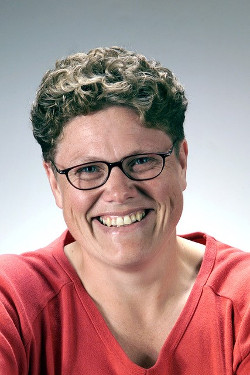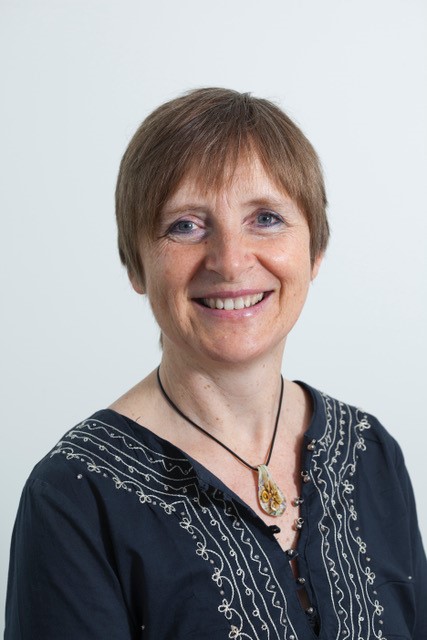Conference Plenary Speakers
Assoc. Prof. Dr. Averil Coxhead (University of Wellington)
 Associate Professor Averil Coxhead teaches undergraduate and postgraduate
courses in Applied Linguistics in the School of Linguistics and Applied
Language Studies, Victoria University of Wellington, Aotearoa/New Zealand.
She developed the Academic Word List (2000) and was a co-author for the new
Academic Spoken Word List (Dang, Coxhead, & Webb, 2017). Her most recent
books include Vocabulary and English for Specific Purposes research:
Quantitative and qualitative perspectives (2018; Routledge) and Reading for
the academic world, a series of textbooks with Professor Paul Nation (2018,
Seed Learning). Averil is currently researching specialised vocabulary in
spoken and written English in the trades and higher education.
Associate Professor Averil Coxhead teaches undergraduate and postgraduate
courses in Applied Linguistics in the School of Linguistics and Applied
Language Studies, Victoria University of Wellington, Aotearoa/New Zealand.
She developed the Academic Word List (2000) and was a co-author for the new
Academic Spoken Word List (Dang, Coxhead, & Webb, 2017). Her most recent
books include Vocabulary and English for Specific Purposes research:
Quantitative and qualitative perspectives (2018; Routledge) and Reading for
the academic world, a series of textbooks with Professor Paul Nation (2018,
Seed Learning). Averil is currently researching specialised vocabulary in
spoken and written English in the trades and higher education.
Researching Vocabulary in Speaking: Implications for EAP
This talk looks at four recent research studies that focus on vocabulary in academic speaking contexts. The first study is the Academic Spoken Word List (Dang, Coxhead & Webb, 2017), which was developed from a large corpus of academic speaking, and is graded according to learner proficiency levels. The second is an analysis of vocabulary in teacher talk in Maths, Science and English as an Additional Language in an international school in Germany. The third study focuses on single words and multi-word units in corpora based on small group interactions at university: laboratories and tutorials. The fourth study is an analysis of vocabulary-focused activities in a range of EAP textbooks which was carried out as part of the third study. The talk will draw these studies together and consider their implications for EAP pedagogy, materials and course design.
Maxine Gillway (University of Bristol)
 Maxine Gillway started her EAP career in at Bilkent University in the late 1990s after working for many years in ELT. She is currently Director of the Centre for English Language at the University of Bristol, Chair of BALEAP and EdD candidate at the University of Bath. Her interests include the internationalisation of higher education, EAP curriculum development, assessment literacy and teacher cognition.
Maxine Gillway started her EAP career in at Bilkent University in the late 1990s after working for many years in ELT. She is currently Director of the Centre for English Language at the University of Bristol, Chair of BALEAP and EdD candidate at the University of Bath. Her interests include the internationalisation of higher education, EAP curriculum development, assessment literacy and teacher cognition.
The Choice of Futures for EAP
As language teachers we all know that the choice of future form depends heavily on context. As writing teachers, we no doubt tell our students that audience and purpose determine our choices of content, organisation and language. I will argue that the same is true of EAP: we are each responsible for choosing our futures according to our audience and purpose. I offer a strategic planning tool for analysis of contexts, applying it to my local context and to a global context before inviting you to apply it to your own context.
Edward de Chazal (Queen Elizabeth’s Secondary School)
 Edward de Chazal graduated in English and Classics from the University of London in 1987, and started teaching English as a Foreign Language that year in Izmir, Turkey. Since 1990 he has specialized in ESP and EAP at Bilkent University in Ankara, the Command and Staff College in Kuwait, UCL in London, and from 2008 has been visiting lecturer in EAP at the Czech University of Life Sciences in Prague. Edward has worked in 20 countries as a teacher, Trinity College London examiner, teacher trainer, consultant or presenter. He has written many articles and books, including business English titles for Macmillan and the multi-level Oxford EAP series and the English for Academic Purposes title in the Oxford Handbooks for Language Teachers series. In the academic year 2017 – 2018 he has been training at Queen Elizabeth’s School in Dorset as a teacher of secondary English.
Edward de Chazal graduated in English and Classics from the University of London in 1987, and started teaching English as a Foreign Language that year in Izmir, Turkey. Since 1990 he has specialized in ESP and EAP at Bilkent University in Ankara, the Command and Staff College in Kuwait, UCL in London, and from 2008 has been visiting lecturer in EAP at the Czech University of Life Sciences in Prague. Edward has worked in 20 countries as a teacher, Trinity College London examiner, teacher trainer, consultant or presenter. He has written many articles and books, including business English titles for Macmillan and the multi-level Oxford EAP series and the English for Academic Purposes title in the Oxford Handbooks for Language Teachers series. In the academic year 2017 – 2018 he has been training at Queen Elizabeth’s School in Dorset as a teacher of secondary English.
The Future of EAP: Drilling down from tertiary to secondary EAP
In the half-century since its humble beginnings, EAP has developed alongside English-medium instruction into an emerging global phenomenon. Central to this expansion has been EAP’s ability to adapt to new research, pedagogies and markets. This talk aims firstly to identify the major trends and tensions currently operating in and relating to EAP. Such an understanding of the current context can then inform a view of how and where EAP is likely to develop. The second part of the talk explores the crucial yet under-researched field of secondary EAP (EAP teaching in secondary or high schools), for which there is a compelling logic. These explorations of tertiary and secondary EAP yield a proposed core curriculum of academic language, critical thinking and needs-driven communication which lie at the heart of EAP in any context.
